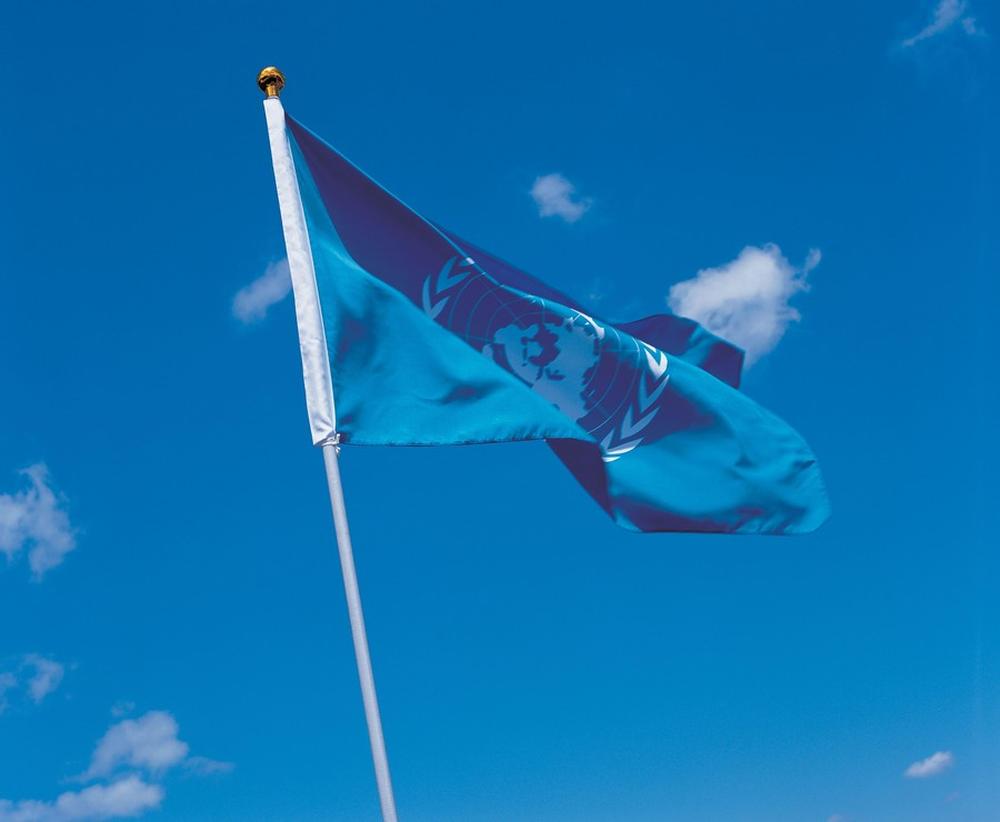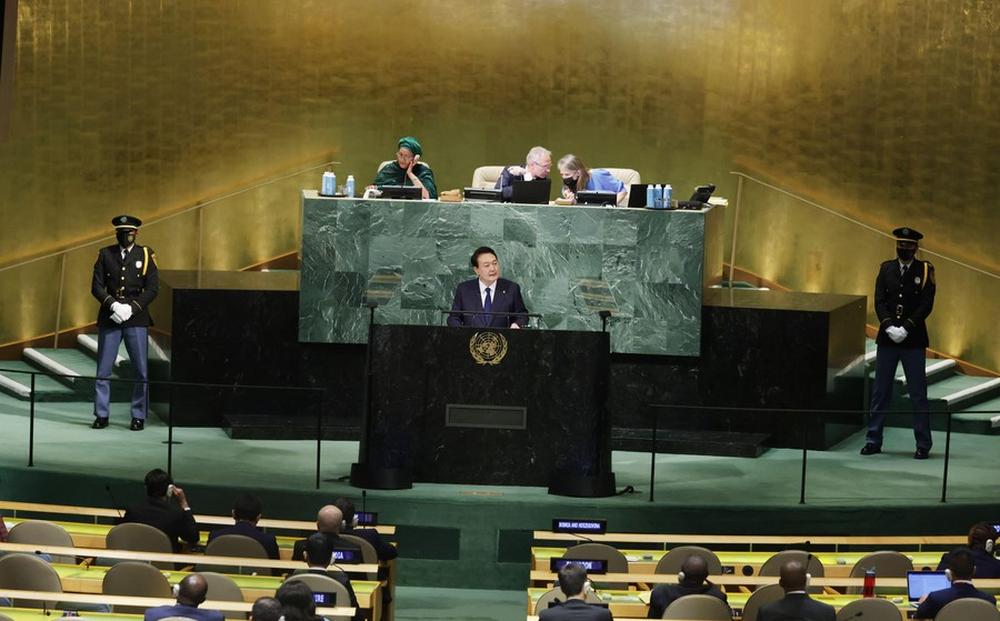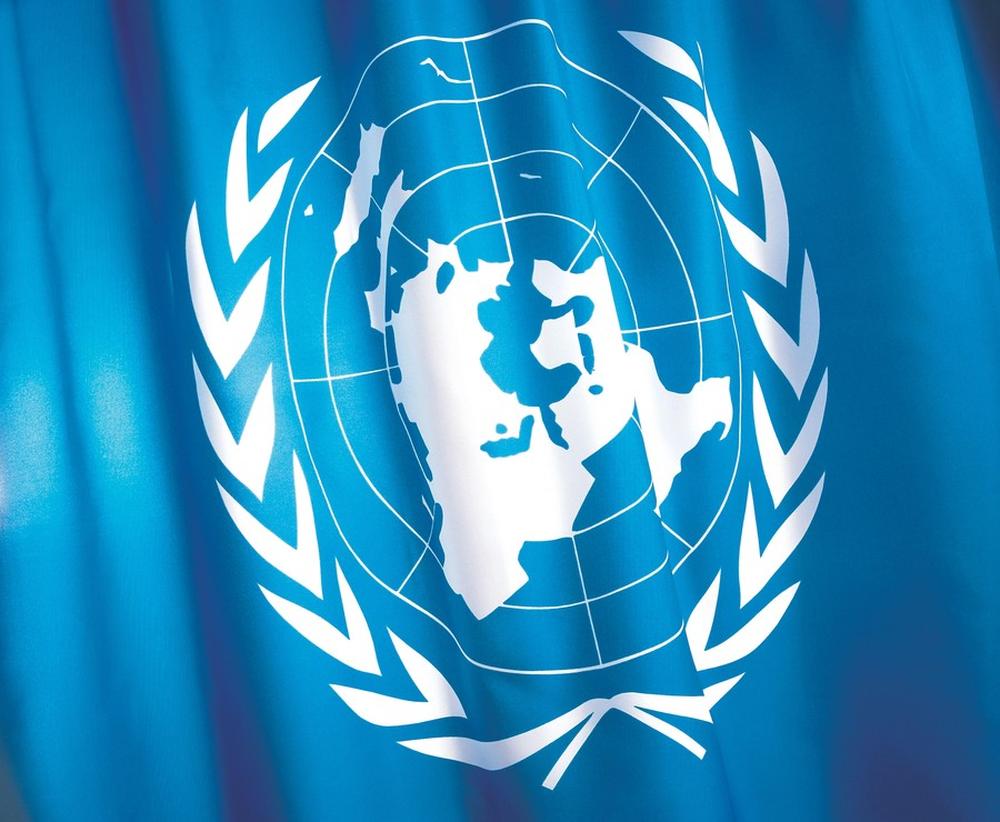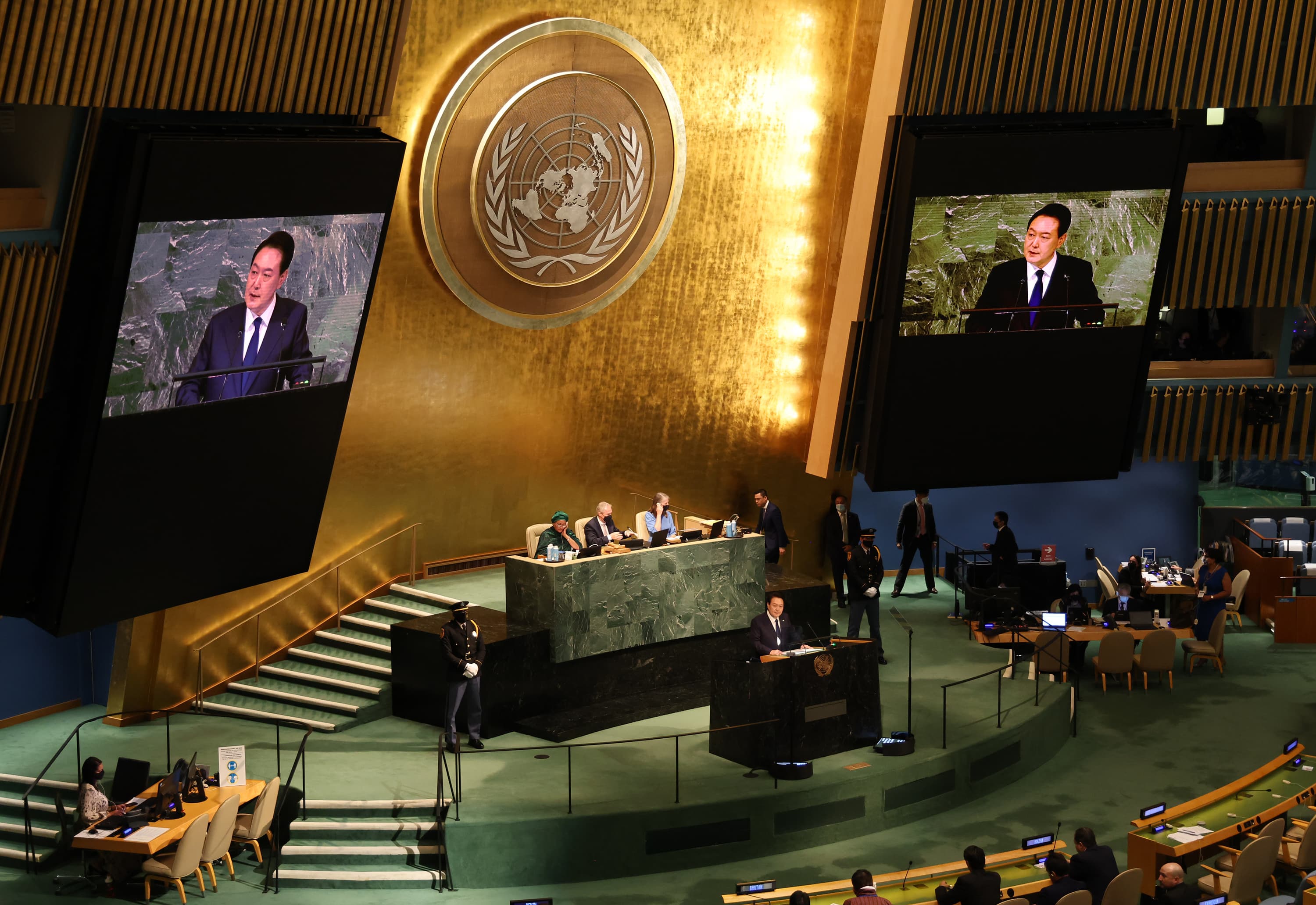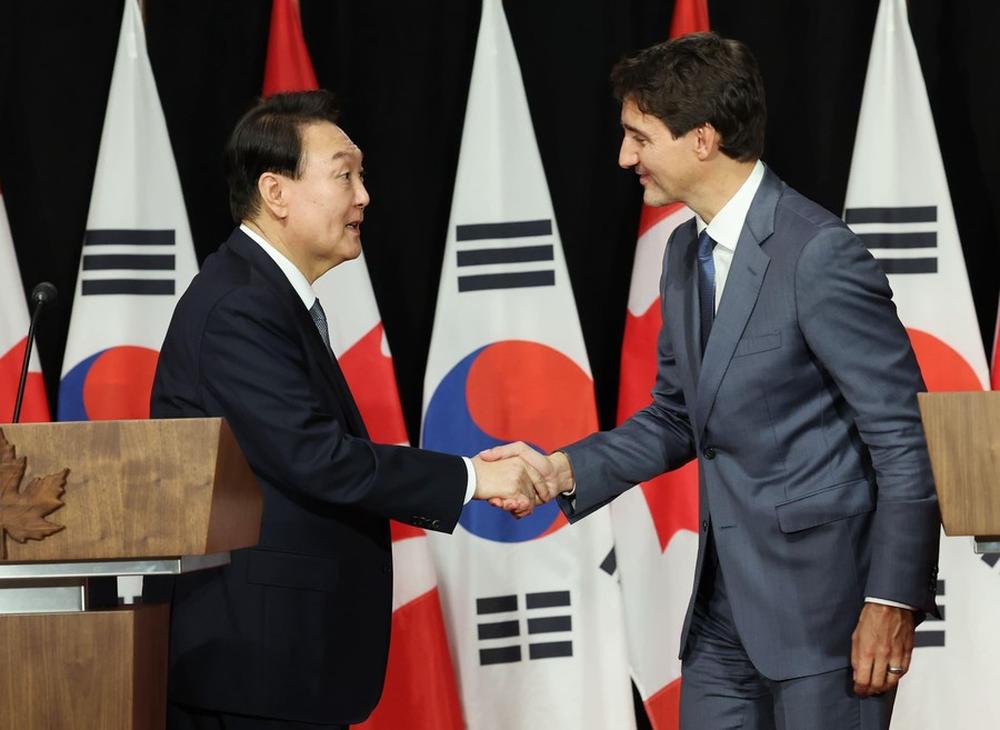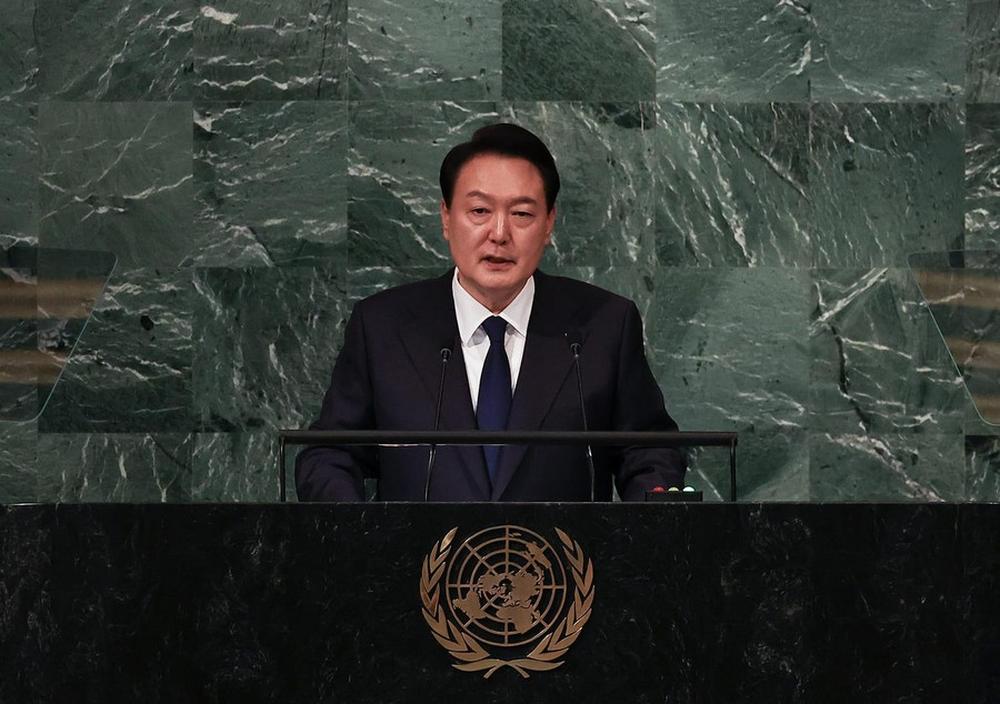- #Global Issues
- #Multilateral Relations
- #South Korea
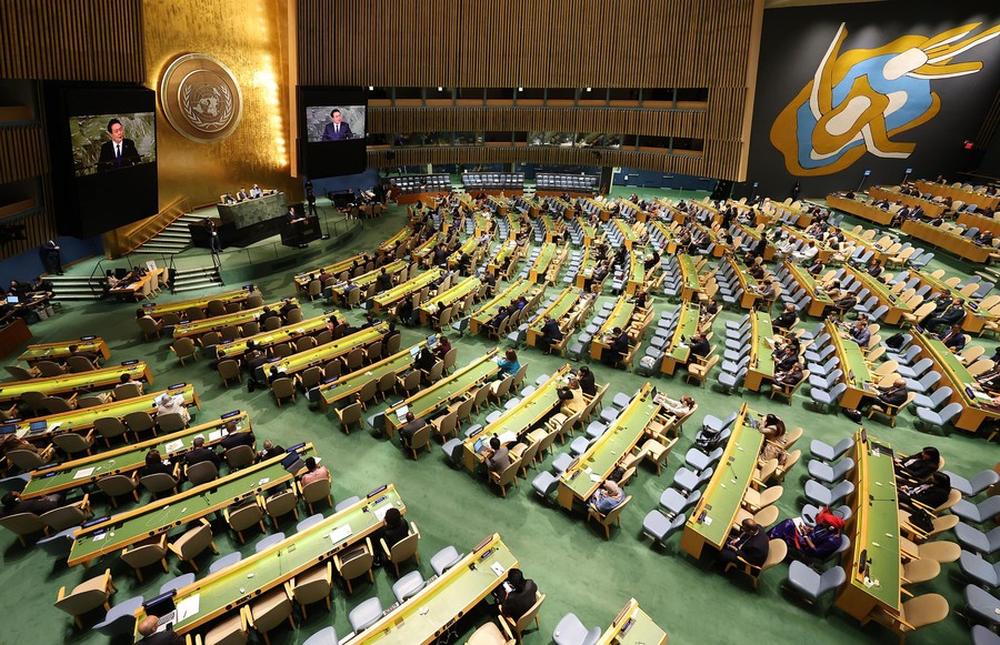
►On September 20, President Yoon Suk Yeol delivered a speech titled "Freedom and Solidarity: Answers to the Watershed Moment" at the 77th United Nations General Assembly. The speech called for the international community to unite in solidarity around the United Nations in order to protect the universal value of "freedom".
►With this speech, President Yoon demonstrated his determination to ensure that the Republic of Korea takes a leading role in protecting and spreading the universal values of humanity beyond the geopolitical space of the Korean peninsula.
►The task that now remains for the Yoon administration to accomplish such a goal is to refine this global vision and realize the necessary policy objectives.
On September 20, President Yoon Suk Yeol delivered a speech titled "Freedom and Solidarity: Answers to the Watershed Moment" at the 77th United Nations General Assembly. It was the President's first speech at the UN General Assembly since his inauguration. At its core, the speech called for the international community to unite in solidarity around the United Nations in order to protect the universal value of "freedom". He informed world leaders that the value of "freedom," which he has consistently emphasized in his major speeches, including his inaugural address, NATO summit speech, and National Liberation Day speech, will become the backbone of his administration's diplomatic strategy.
In his speech, President Yoon stated that today the freedom and peace of people around the world are jeopardized by attempts to alter the status quo by force, nuclear proliferation, and the systematic violation of human rights. He said that seeking solutions to and overcoming this crisis begins with "solidarity and deference to the universally accepted global norms, working together throughout the UN system which has been established over the past decades." He also emphasized that "genuine peace is not an absence of war" but rather can only be achieved when "we are free from disease and hunger, free from illiteracy and free from want of energy and culture." Therefore, he promised that as a responsible member of the international community, Korea will fulfill its rightful role and responsibility as a global pivotal state by expanding support for socially vulnerable people and countries in need. With this speech, President Yoon demonstrated his determination to ensure that the Republic of Korea takes a leading role in protecting and spreading the universal values of humanity beyond the geopolitical space of the Korean peninsula. Unlike the Moon administration, which became consumed by North Korea issues, such as a peace treaty and end-of-war declaration, the Yoon administration has proposed a global vision centered around "support for those who are in need" based on the freedom and solidarity of the international community.
The task that now remains for the Yoon administration to accomplish such a goal is to refine this global vision and realize the necessary policy objectives. In order to contribute to the international community in a way that matches Korea's global standing, the administration has actually set the 2023 ODA budget at 4.5 trillion won, 14.2% higher than this year's budget. The government will also significantly increase its contribution to the UN regular and peacekeeping budgets from 275.8 billion won this year to 301.5 billion won next year. A country's UN contribution is determined by its economic strength, and as one of the world's top 10 economies, Korea is currently ranked as the ninth-largest contributor. Therefore, in line with this increased capability and the vision of the new administration, the government is expected to increase Korea’s contribution and role in the following areas.
Digital Aid that Contributes to Freedom and Democracy in Vulnerable Nations
These days, freedom and human rights are under threat in many places around the world. In Afghanistan, Myanmar, and North Korea, government and military forces are committing serious human rights violations. At the same time, according to the Varieties of Democracy Institute in Sweden, democracy is backsliding in countries such as Turkey, Bangladesh, Thailand, and Nicaragua. As a leading digital nation, the Republic of Korea can substantially contribute to addressing these issues. Korea is recognized in the international community as a model for democracy and human rights, and that recognition is based on Korea's "smart citizens," who are connected to their mobile phones and social media based on an advanced ICT infrastructure. The role of ICT will become even more important for the development of democracy, which requires citizens to communicate and participate in the political process, and in the future, there may be a large gap in democratic development between the countries that have this kind of technology and infrastructure and know how to use it and those that do not. Therefore, Korea should leverage its world-class ICT and democratic systems to expand digital aid to promote freedom, human rights, and democracy, first for countries in Asia that support universal values and then for the citizens of developing countries around the world.
In his UN speech, President Yoon said, "Countries at the forefront of digital innovation must offer broader assistance for digital education, technology transfer, and investment," and he added, "We will continue to more widely share our advanced digital technology and data, and spare no effort in providing support and in investing in education." Now is the time to design and refine policies to fulfill these promises. Based on this, Korea can take the lead in the international discussion on "peaceful, just, and inclusive societies" - Goal 16 and the ultimate aim of the UN Sustainable Development Goals (SDGs) - and exert its influence and soft power in the process of achieving Digital for Development (D4D), a key international initiative that aims to reduce the global development gap.
K-Peacekeeping Operations that Contribute to Human Security
The evolution of peacekeeping operations (PKO) into comprehensive activities that ensure people are protected from violence, famine, and disease has highlighted the importance of peacekeeping forces as the major players in ensuring "human security." As the country with the tenth highest national defense budget, the Republic of Korea can improve its status and national image in the international community by contributing to preventing conflict and promoting human security in vulnerable countries outside the Korean peninsula. Because Korea is relatively competitive and has expertise in maintaining peace and security, this has the potential to become the country's representative soft power asset. Moreover, because peacekeeping operations use limited force to contribute to stability in conflict zones while also carrying out humanitarian activities, such as disaster relief, maintaining public order, and protecting human rights, they help win the hearts and minds of the people in recipient countries and contribute to "security public diplomacy," which promotes trust in Korea. All in all, international peacekeeping operations carried out in line with the universal value of freedom can help bring together middle powers, international organizations, and international NGOs and provide opportunities for Korea to mobilize its leadership to develop international norms and promote cooperation. With this in mind, the Republic of Korea should cooperate with the UN to expand peacekeeping operations centered around human security that link conflict prevention missions with sustainable development and governance reform (improving freedom and democracy).
The Republic of Korea that Contributes to Reducing Medical Polarization
Socially and economically vulnerable groups have been the hardest hit by the COVID-19 crisis, intensifying global polarization and inequality. Recently, we have witnessed "vaccine nationalism," where the development and distribution of vaccines is carried out largely in wealthy and powerful countries. For this reason, President Yoon announced that Korea is "pledging 300 million dollars toward the ACT-A Initiative and 30 million dollars to the Financial Intermediary Fund of the World Bank, among others, thereby expanding its contribution to building a more robust global health architecture (to promote the development and fair distribution of COVID-19 vaccines and treatments)." Moreover, on the following day at the UN General Assembly, President Yoon pledged to donate 100 million dollars to the "Global Fund," which was established to eradicate three major infectious diseases - AIDS, tuberculosis, and malaria. Now, the government needs a strategy to make this vision a reality. To do so, the administration should put in place a detailed action plan that strengthens cooperation with international organizations to promote the fair and efficient development and distribution of infectious disease vaccines and treatments for least developed countries and socially vulnerable groups, to foster coordination between major countries for this purpose, and for decreasing global medical polarization.
Finally, it is crucial that the government explain to the public why Korea must engage in global diplomacy and the benefits of doing so for freedom and solidarity. Even if the government creates good policies, they will be ineffective without public support. The government must remember that understanding and support from the public are prerequisites to realizing the goal of becoming a global pivotal state and should create its policy platform in cooperation with the Korean people.
Hyun Jin Choi, Ph.D. (Michigan State University, 2012), is an Associate Professor in the Department of Political Science at Kyung Hee University, Seoul. Prof. Choi’s research interests fall within the field of international relations, civil war, and development cooperation. His articles have been published in numerous refereed journals, including Global Environmental Change; International Studies Quarterly; Democratization, Comparative Politics; and Journal of Conflict Resolution. Mr. Choi has served as a research director of the Korea Academic Council of the United Nations System (KACNUS) since January 2021.
